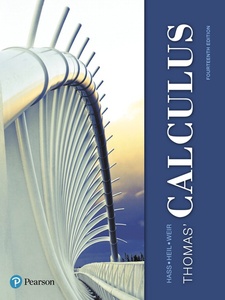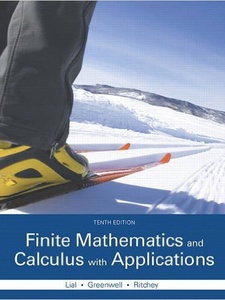Related questions with answers
The population of the world in the year 1650 was about 500 million, and in the year 2010 was 6756 million. (a) Assuming that the population of the world grows exponentially, find the equation for the population P(t) in millions in the year t. (b) Use your answer from part (a) to find the population of the world in the year 1. (c) Is your answer to part (b) reasonable? What does this tell you about how the population of the world grows?
Solution
Verified(a) Formula for exponential growth and decay function:
Let represent the population at year .
Evaluate the formula at and :
When the two equations hold, then the ratio of each side of the two equations is equal as well:
Next, we determine the constant using the previously found equation and :
Let us use the found value of in the given formula:
(b) Result part (a):
Evaluate the formula for at :
Thus the population of the world in year 1 was approximately 0.003309 million, or 3309 people.
(c) It was estimated that the population in the year 1 was approximately 231 million.
Since the population of 3309 people is much smaller than the population of 231 million, the answer to part (b) doesn't seem to be reasonable.
This tells us that the population growth doesn't follow an exponential growth pattern.
(a)
(b) 3309 people
(c) No, No exponential growth
Create an account to view solutions
Create an account to view solutions
Recommended textbook solutions

Thomas' Calculus
14th Edition•ISBN: 9780134438986 (4 more)Christopher E Heil, Joel R. Hass, Maurice D. Weir
Finite Mathematics and Calculus with Applications
10th Edition•ISBN: 9780321979407Margaret L. Lial, Nathan P. Ritchey, Raymond N. Greenwell
Calculus: Early Transcendentals
8th Edition•ISBN: 9781285741550 (1 more)James Stewart
Calculus: Early Transcendentals
9th Edition•ISBN: 9781337613927 (3 more)Daniel K. Clegg, James Stewart, Saleem WatsonMore related questions
- calculus
- calculus
1/4
- calculus
- calculus
1/7